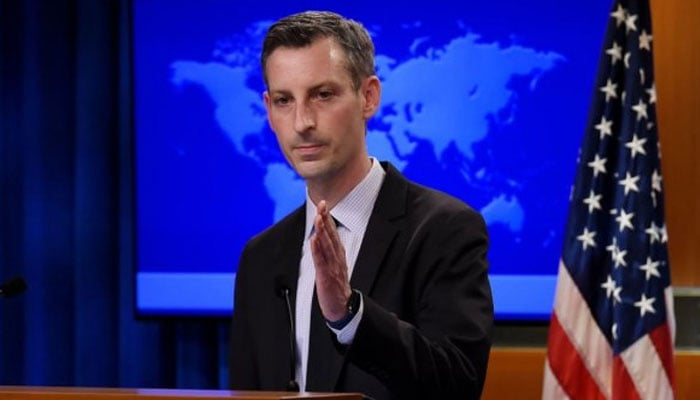US says it has not changed policy on Kashmir
A day earlier, the US referred to occupied Kashmir as "India's Jammu and Kashmir"
The United States has not changed its policy on Kashmir, said a spokesperson of the US State Department on Thursday.
The announcement was made during a press briefing by the US State Department Spokesperson Edward Price, who was asked to comment on the recent tweet by the department in which the US referred to occupied Kashmir as "India's Jammu and Kashmir".
"Could you comment also on a tweet earlier today that State tweeted out saying that – it refers to India’s Jammu and Kashmir? Now, is this a change in policy? Does State does not recognize this as a disputed territory? Is there some sort of change in position that we need to know? There’s been certain criticism of the phrasing today," asked a reporter.
"I want to be very clear there has been no change in US policy in the region," said Price.
The tweet being spoken of was the one in which the US had welcomed the resumption of internet services in occupied Kashmir.
"We welcome the resumption of 4G mobile internet in India's Jammu & Kashmir. This marks an important step for local residents and we look forward to continued political & economic progress to restore normalcy in J&K," the tweet had read.
Jammu and Kashmir never was an Indian territory, never will be: Pakistan
Tensions between nuclear-armed neighbours Pakistan and India have been on the rise ever since New Delhi scrapped Article 370 of the Indian constitution that granted Kashmir autonomous status.
Pakistan has also accused India of being actively involved in orchestrating, financing and providing logistical support to terrorist organisations like the Tehreek-i-Taliban Pakistan and the Jamaat-ul-Ahraar to target Pakistan from across the border.
“Indian has hired and organised criminal groups located at our western borders to conduct terrorist attacks in Pakistan, especially to disrupt the development of the western and southern regions of my country," said a senior Pakistani diplomat at the UNGA last year.
-
Security forces gun down 30 terrorists in multiple IBOs in KP: ISPR
-
MQM-P calls for new province in Sindh
-
US report validates Pakistan military edge over India: PM
-
Banned TTP poses serious threat to Pakistan security: UNSC panel
-
CM Afridi clarifies remarks on by-poll after ECP requests army deployment
-
Dubai sees 3.2m Pakistani passengers in 2025 as airport sets new milestone
-
Security forces kill 23 Indian proxy terrorists in KP's Kurram
-
Pakistan to construct island to boost oil exploration: report












